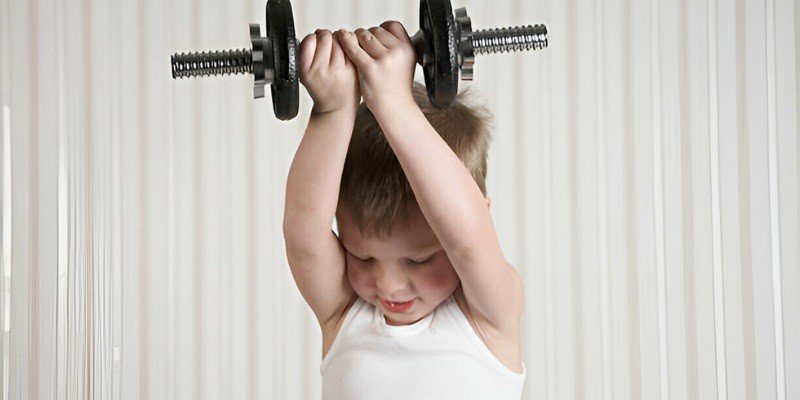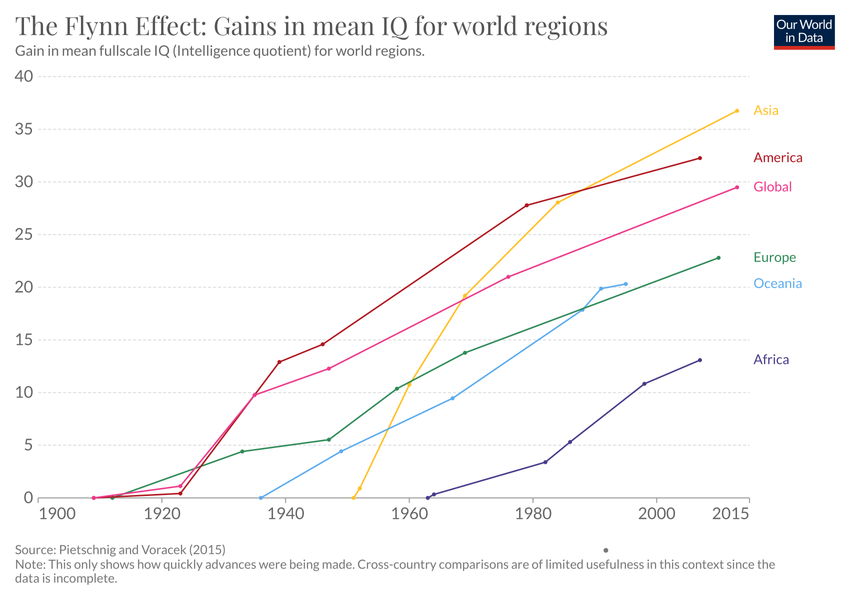Are Kids Getting Dumber?

No, kids are not getting dumber. Studies show changes in educational methods and technology impact learning differently.
The concern about kids getting dumber is unfounded. Modern education faces significant changes with technology and evolving curriculums. Children today have access to vast information through the internet and digital tools. This access changes how they learn and process information.
Traditional learning metrics may not fully capture these new skills. Different generations prioritize different types of knowledge and learning methods. Parents and educators must adapt to these shifts. Encouraging critical thinking and digital literacy is crucial. Understanding these changes helps in supporting children’s education. Kids are learning differently, not less effectively.

Credit: medium.com
Evaluating The ‘dumbing Down’ Perception
Many believe kids are getting dumber. Is this true? We need to understand various aspects. Let’s explore the data and facts.
Shifts In Educational Metrics
Educational metrics have changed over the years. Schools now use different methods to measure intelligence.
- Standardized tests are more common today.
- More focus on critical thinking.
- Emphasis on problem-solving skills.
These changes can make it seem like kids are doing worse. But, are they really?
| Year | Test Type | Average Score |
|---|---|---|
| 2000 | Multiple Choice | 75% |
| 2020 | Critical Thinking | 68% |
Notice the shift in test types. This affects average scores. It doesn’t mean kids are less smart.
Influence Of Technology On Intelligence
Technology impacts intelligence in various ways. Kids today have access to vast information.
- Easy access to educational resources.
- Interactive learning through apps.
- Exposure to global perspectives.
Despite these benefits, technology has drawbacks. It can lead to shorter attention spans. Kids might rely too much on gadgets.
Balance is key. Parents should guide tech use. Encourage kids to think critically, both online and offline.

Credit: www.linkedin.com
Factors Affecting Modern Learning
Parents and teachers worry about kids’ learning abilities today. Many factors impact modern learning. These influences shape how kids understand and retain information.
Changes In Teaching Methods
Teaching methods have evolved over the years. Traditional techniques focused on memorization and repetition. Now, schools embrace interactive and digital learning. These new methods aim to make learning fun and engaging.
Teachers use smartboards, tablets, and online resources. These tools can help kids learn better. But they also present challenges. Some kids may find it hard to focus with so much technology.
| Traditional Methods | Modern Methods |
|---|---|
| Lectures | Interactive Lessons |
| Textbooks | Online Resources |
| Memorization | Critical Thinking |
Impact Of Social Media And Entertainment
Kids today spend a lot of time on social media. Platforms like TikTok and YouTube are very popular. These platforms can be educational, but they also distract kids from studying.
Entertainment options have also increased. Streaming services like Netflix and Disney+ offer endless shows and movies. Kids may spend hours watching instead of doing homework.
- Social media can reduce attention spans.
- Entertainment options can lead to procrastination.
- Excessive screen time can affect sleep and health.
Parents and teachers need to find a balance. They should encourage kids to use technology wisely. Setting screen time limits can help. Encouraging outdoor activities and reading books is also beneficial.
Analyzing Intelligence Across Generations
Are kids getting dumber? This is a question many people ask today. Let’s dive into the topic by analyzing intelligence across generations. We will look at historical IQ trends and assess cognitive skills today. This will help us understand the changes in intelligence over time.
Historical Iq Trends
IQ, or intelligence quotient, has been measured for many years. Historically, IQ scores have shown an upward trend. This phenomenon is called the Flynn Effect. In the 20th century, average IQ scores increased by about 3 points per decade. This increase was linked to better nutrition, improved education, and more complex environments.
Some experts argue that IQ tests have changed over time. Older tests might not measure the same skills as modern tests. This can make it hard to compare scores across generations. Despite these challenges, the overall trend shows a rise in IQ scores.
Assessing Cognitive Skills Today
Today, we assess cognitive skills through various tests. These tests measure different abilities such as memory, problem-solving, and critical thinking. Recent studies suggest that some cognitive skills are declining. For example, some research shows a drop in verbal skills and reading comprehension.
Several factors could explain this decline. Increased screen time and reduced physical activity might affect brain development. Additionally, changes in education methods might impact how kids learn. Despite these concerns, other skills may be improving. Kids today are often better at multitasking and using technology.
Here is a table summarizing these trends:
| Generation | IQ Trend | Key Factors |
|---|---|---|
| Early 20th Century | Increasing | Better nutrition, improved education |
| Late 20th Century | Increasing | Complex environments, more stimulation |
| 21st Century | Mixed | Screen time, changes in education |
To summarize the key points:
- Historical IQ Trends: IQ scores increased in the 20th century.
- Assessing Cognitive Skills Today: Some skills decline, others improve.

Credit: www.usnews.com
Frequently Asked Questions
Are Students Dumber Than Before?
Students are not dumber than before. Educational challenges have changed, but intelligence levels remain consistent. Teaching methods and technology impact learning experiences.
Why Are Kids Out Of Control?
Kids may be out of control due to lack of discipline, inconsistent rules, or insufficient parental supervision. Busy lifestyles and excessive screen time can also contribute to behavioral issues. Effective communication and setting clear boundaries are crucial for managing children’s behavior.
Are Kids Getting Dumber Nowadays?
No, they are not. Various factors affect intelligence, but kids today have more access to knowledge and resources.
What Affects Children’s Intelligence?
Nutrition, education, environment, and genetics play key roles in shaping a child’s cognitive abilities.
Are Modern Educational Systems Effective?
Modern educational systems have strengths and weaknesses. They often emphasize standardized testing, which may not measure true intelligence.
Conclusion
The debate on whether kids are getting dumber is complex. Various factors, including education and technology, influence intelligence. Parents and educators play crucial roles. Fostering curiosity and critical thinking is essential. Encouraging positive learning environments can help children reach their full potential.
Let’s focus on nurturing the minds of future generations.
